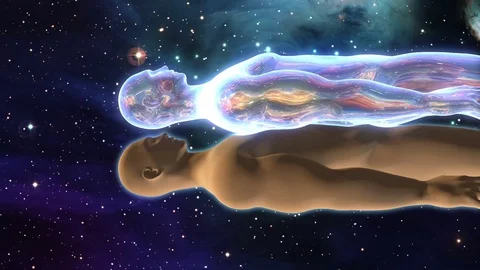For millennia, people have been captivated by the idea of the law of reincarnation raw, which presents an outlook on life and death that goes beyond traditional beliefs. The concept that our souls may experience a cycle of reincarnation has been absorbed worldwide into a wide range of cultures, faiths, and philosophical systems. In this investigation, we explore the Law of Reincarnation, going deeply into its meaning, core principles, and the enormous influence it has on our comprehension of the soul’s journey and the meaning of life.
The Essence of Reincarnation
The theory of reincarnation, also known as soul transmigration, holds that the soul does not die along with the body when it dies but instead continues its journey by taking on a new physical form Law of Reincarnation Raw. It is thought that until the soul experiences spiritual development and enlightenment, this cycle will continue. Numerous historical civilizations, including Buddhism, Jainism, Hinduism, and even ancient Egyptian and Greek ideologies, were influenced by this theory.
Karma and Reincarnation
Kaarma, or the law of cause and effect, is a fundamental idea in the concept of reincarnation. This law states that decisions, experiences, and deeds committed during one lifetime have an ongoing effect on subsequent lifetimes. In contrast to bad activities, which bring sorrow and difficulties in subsequent lifetimes, positive actions provide beneficial results. This link between reincarnation and karma emphasizes the ethical and moral implications of our decisions, highlighting the notion that our choices have effects that last beyond a single lifetime.
The Quest for Enlightenment
Achieving transcendence and ending the cycle of rebirth is the ultimate aim of enlightenment, which is frequently viewed as a search for enlightenment. Buddhism and other spiritual traditions place a strong emphasis on achieving Nirvana, the state where the cycle of birth and death ends. The desire for self-awareness, spiritual development, and freedom from worldly cravings becomes the motivation behind reincarnations as souls strive to reach a higher level of consciousness.
Cultural Interpretations
Diverse cultural traditions view rebirth in different ways. In Hinduism, the idea of dharma—one’s obligation or purpose in life—and the cycle of rebirth are closely related. Every existence presents a chance to accomplish one’s dharma and advance spiritually. The concept of the Dalai Lama, a spiritual leader who is thought to have reincarnated to continue the teachings and wisdom of their predecessors, is introduced by Tibetan Buddhism.
Scientific and Philosophical Contemplations
Although reincarnation has its roots in spiritual traditions, philosophers and even some scientists have expressed interest in it. The concept of reincarnation as an explanation has drawn attention from experts due to reports of small children remembering memories of prior incarnations and past-life regression. The nature of consciousness, memory, and the relationship between the mind and the soul are among the issues this investigation brings up.
The Influence of Reincarnation in Modern Times
The idea of reincarnation has crossed all conventional barriers and is still relevant in modern thought. Reincarnation is a component of new-age spirituality and alternative belief systems, which provide seekers with a new outlook on life’s meaning. In addition, the idea has been incorporated into popular culture, literature, and art, proving how fascinating it is even now.
The fundamental Law of Reincarnation provides us with a profound prism through which to view the soul’s journey through multiple lives. It forces us to consider the significance of our life, the interdependence of our deeds, and the quest for spiritual enlightenment. Reincarnation continues to be a fascinating investigation into the secrets of life and death, urging us to contemplate the limitless possibilities that exist beyond the veil of mortality, whether viewed through the lens of ancient wisdom or contemporary curiosity.
